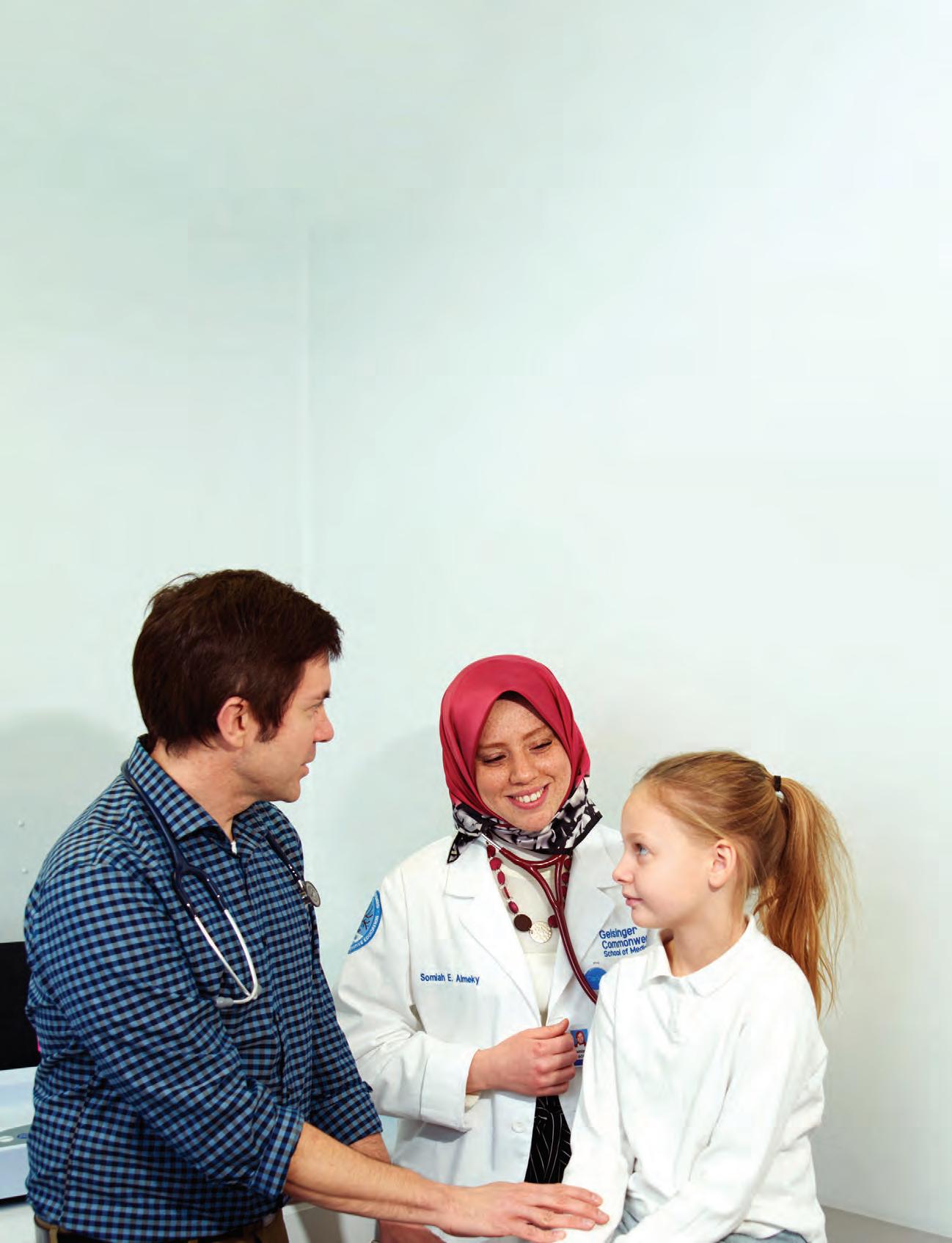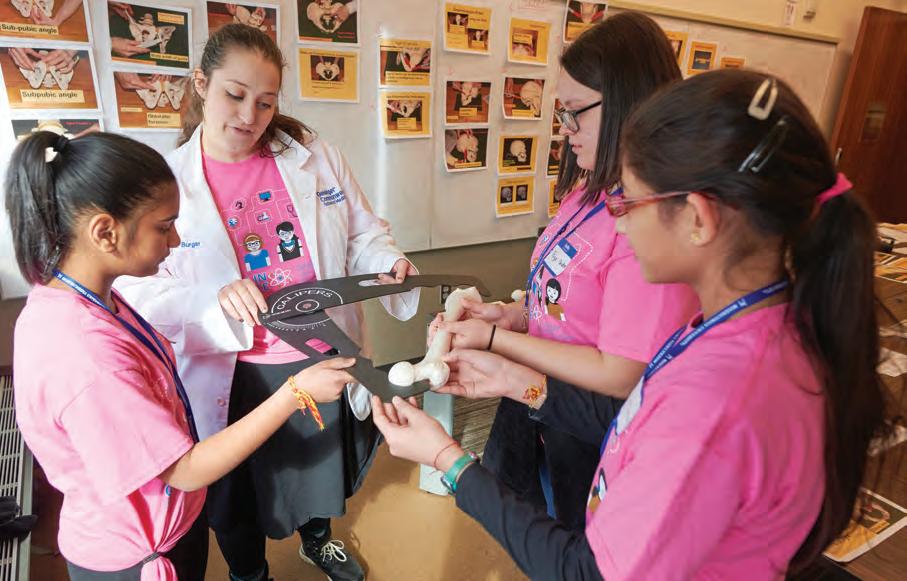
4 minute read
Caring for the community
from MD Brochure 2020
This community’s medical college
Caring for the community
There’s a space in medicine where encyclopedic scientific knowledge and finely tuned clinical skills can’t reach. It’s the space where a physician connects with patients, beyond their collection of signs and symptoms — on a human level, where true communication occurs. As medicine’s technological complexity increases, so does the need for practitioners who effortlessly inhabit this infinitely more fundamental space. At Geisinger Commonwealth School of Medicine, we call that space caring. And, along with mastery of medical knowledge and clinical skills, it forms the basis of our MD curriculum.
It begins with a focus on the student
Geisinger Commonwealth’s medical education blends tradition with invention. Our curriculum honors the century-old mandate that students gain experience and expertise in basic and clinical science, but it also capitalizes on the learning advantages inherent in being part of a dynamic, fully integrated health system that sets the standard for medicine’s new focus on improving outcomes through initiatives in population health and the novel use of technology.
All of this begins, however, with the student. Throughout their four years at Geisinger Commonwealth, students engage in professional identity formation that asks them to look within and begin to build a core of values and priorities. This core is something students can rely on to replenish their mental and spiritual reserves, and something that will keep them connected to their ideals when the strenuous pace of medical education — and later medical practice — can seem overwhelming. Throughout their time at Geisinger Commonwealth, through a variety of assignments and experiences, medical students are continually challenged to envision and to plan for not just what kind of doctor they want to be, but also what kind of person.
Putting the patient at the center of medicine
At Geisinger Commonwealth, students spend time with real patients right away. Throughout their first two years, our students participate in the Family
Centered Experience (FCE) Program.
Students take a break from studying anatomy, physiology and molecular biology to meet with their assigned family — community volunteers who agree to allow medical students into their homes and lives to be up-close witnesses to what it’s like for a family to cope with chronic and debilitating illness. Students forge close bonds with the families and often accompany them to various appointments to see firsthand how fragmentation and communication barriers in the health system can impact well-being.
“The FCE Program far exceeded my expectations,” said one student. “It has been a unique, eye-opening addition to my medical school experience that I know I will surely miss moving forward. My FCE family took me in with open arms and made me feel like family in their own home. I will take the memories with me forever.”
The program also has a strong positive impact on our community and volunteers. One family volunteer stated, “Having the opportunity to candidly share experiences throughout the medical system (good and bad) was surprisingly therapeutic and helped me appreciate the journey. I’d never really shared it with anyone outside my immediate family and friends. The students were receptive, thoughtful and overall just lovely individuals. I am excited to see them graduate in the upcoming year. They’ve become friends and I cannot wait to see all they will accomplish.”
The program is integrated into the Patient and Physician-Centered Care 1 & 2 courses through self-reflection and facilitated group discussion. Experiencing medicine from the patient’s point of view is a life-altering experience and an essential piece of learning to put patients at the center of healthcare.
Community immersion: The view from 30,000 feet
During their pre-clinical years of medical school, Geisinger Commonwealth students have a chance to change a community and, in the process, gain the tools and learn the strategies necessary to enhance population health anywhere. In this phase of the MD curriculum, students spend time in a specific community, interact with partner agencies and healthcare facilities, and get to learn about the health status and needs of that community. In addition, they work with our community partners to address a community-identified health concern through a research project. A significant portion of this community experience will take place in the Community
Health Improvement and Promotion
(CHIP) course, which spans the first two academic years.
Mushfiq Tarafder, PhD, director of Preventive Health and Community Studies and associate professor of epidemiology, said that the CHIP course involves active student participation in a multisite community health research project, which additionally serves as a venue for community engagement and servicelearning activities. “The main idea is to give students real contact with community and incorporate hands-on experiences with population health. These are robust projects meant to have lasting impact. The students build intervention projects in collaboration with our partner agencies and they go through every step: literature review, planning, IRB approval, recruiting participants and collecting and analyzing data. This experience is something they can take with them anywhere, and the lessons learned translate to any community,” he said.
Fast fact:

Geisinger Commonwealth students completed 15,162 hours of service in academic year 2019–2020.










